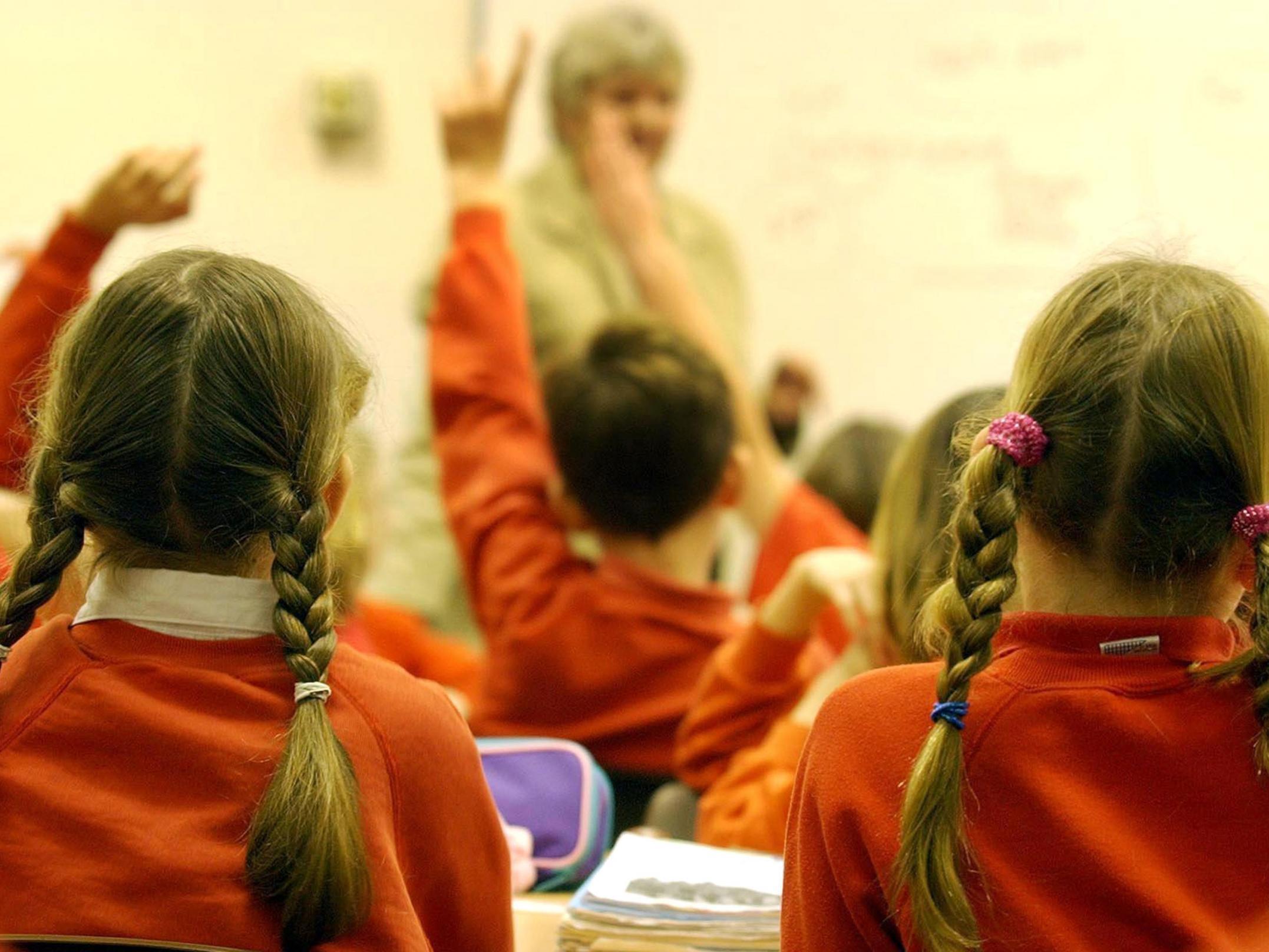Teachers criticise 'unnecessary tests' for four-year-olds
New assessment interferes with pupils' 'settling-in period', says union

Your support helps us to tell the story
From reproductive rights to climate change to Big Tech, The Independent is on the ground when the story is developing. Whether it's investigating the financials of Elon Musk's pro-Trump PAC or producing our latest documentary, 'The A Word', which shines a light on the American women fighting for reproductive rights, we know how important it is to parse out the facts from the messaging.
At such a critical moment in US history, we need reporters on the ground. Your donation allows us to keep sending journalists to speak to both sides of the story.
The Independent is trusted by Americans across the entire political spectrum. And unlike many other quality news outlets, we choose not to lock Americans out of our reporting and analysis with paywalls. We believe quality journalism should be available to everyone, paid for by those who can afford it.
Your support makes all the difference.A teachers' union has criticised the government's decision to replace Key Stage 1 Sats with a new one-on-one assessment system for reception-age primary school pupils.
The Reception Baseline Assessment (RBA) will be rolled out across all primary schools from September this year, the Department of Education (DfE) said on Wednesday.
The 20-minute assessment with a teacher is supposed to be carried out within six weeks of the new term and is designed to provide a starting point by which to measure children's progress.
The Key Stage 1 Sats, which take place in Year 2, when pupils are aged six and seven, are due to be discontinued from 2022/23.
School standards minister Nick Gibb said: “It is hugely important that we understand how much progress primary schools help their pupils make.
“This new teacher-led check will replace the Sats taken at the end of Year 2 to give a better understanding of a child's starting point when they arrive at school and reduce the number of assessments in primary schools overall.”
The assessment covers literacy, communication, language, maths and knowledge appropriate to the age and development of children at the start of reception, the DfE said.
But the National Education Union (NEU) said it is concerned that the new testing will be too stressful for four-year-olds and time-consuming for teachers.
Research among its members who participated in a pilot found that 80 per cent did not think the RBA was an accurate indication of attainment, and 85 per cent preferred their individual school's method of testing.
It found that many thought the new testing was just a “tick-box” exercise, and 69 per cent said it had not helped them develop positive relationships with pupils.
The NEU said: “The government presents the test as brief and 'light touch', but in reality it consumes teacher time and interferes with the settling-in period so important to children's first experience of school.”
One teacher said: “Settling new children is a fine art and is not a time that can be disrupted by unnecessary tests.”
The NEU said 83 per cent of teachers believed the RBA increased their workload and many had to carry out the tests in their own time.
One teacher said: “[I am] having to use all of my preparation, planning and assessment (PPA) time to complete the RBA as I cannot leave the other 29 new children with one teaching assistant.
“This means the work I would have completed in PPA time is being done at lunchtime or after school.”
They added: “After completing the RBA I will still have to do our usual on-entry assessments.”
Mary Bousted, joint general secretary of the NEU, said: “The government persists in spending millions on assessment systems for which there is no evidence of value, when teachers and parents are crying out for serious investment in early years education.”
Education union NAHT was more positive about the change.
General secretary Paul Whiteman welcomed the move to end Year 2 Sats.
“NAHT has long argued that it makes little sense to take a baseline measure for progress midway through the primary years, as is the case now, effectively ignoring the incredible work and progress made in those critical first few years of school.
“The introduction of a reliable and workable baseline assessment to replace Year 2 Sats has the potential to be a fairer way of measuring progress.”
Press Association
Join our commenting forum
Join thought-provoking conversations, follow other Independent readers and see their replies
Comments